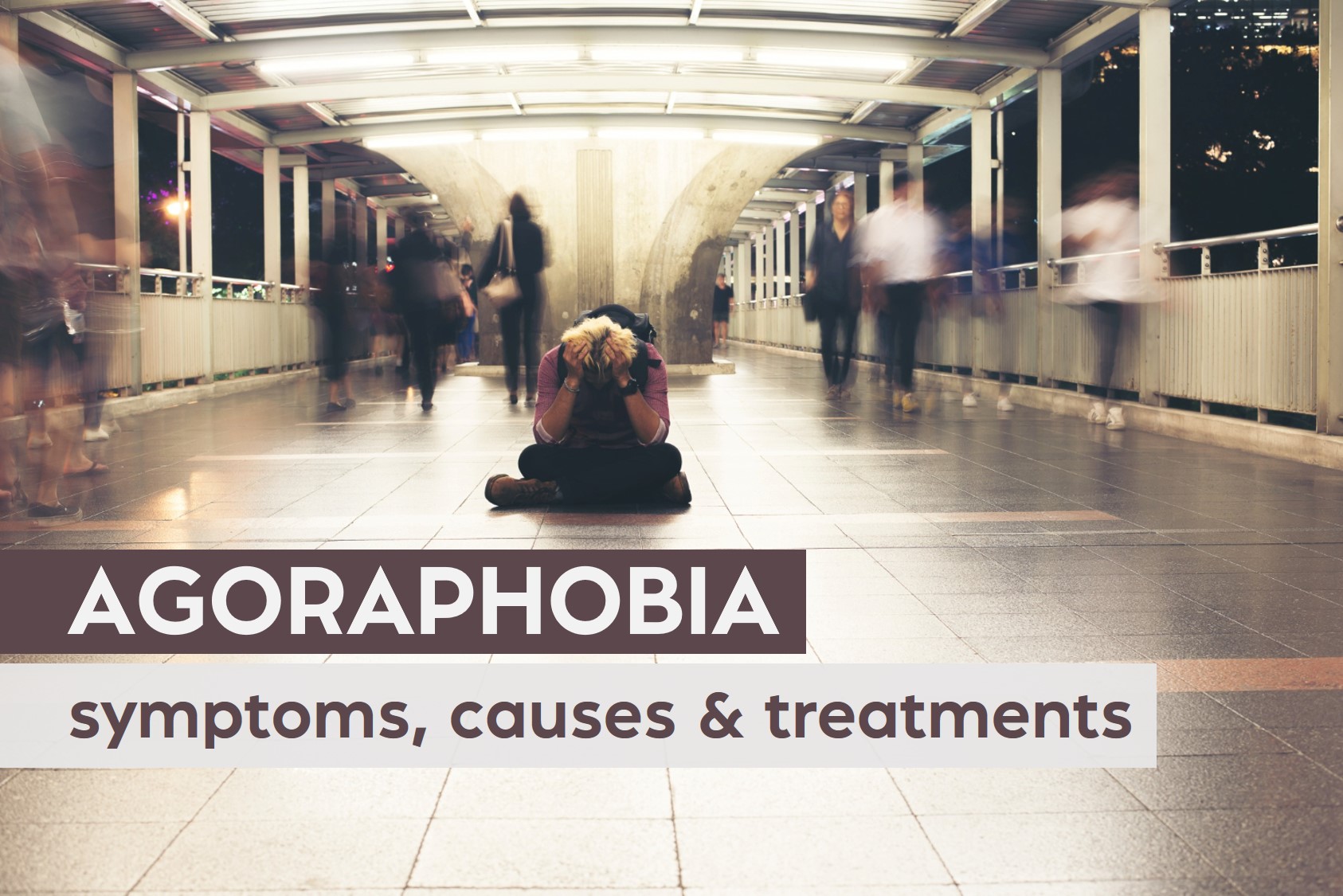What is Agoraphobia?
Agoraphobia is defined by an individual’s fear of being trapped in an open or crowded place in which potential escape is difficult or help may not be readily available.
For example, you might worry or panic when you are in:
- Public transportation (buses, trains, ships, or planes)
- Large, open spaces (parking lots, bridges)
- Closed-in spaces (stores, movie theatres)
- Crowds or standing in line
- Being outside your home alone
Agoraphobia Symptoms
If you have agoraphobia and end up in a place that scares you, you can become very anxious or panic. Physical symptoms of this can include:
- Fast, pounding heart
- Sweating, trembling, shaking
- Breathing problems
- Feeling hot or cold
- Nausea or diarrhoea
- Chest pain
- Problems swallowing
- Dizziness or feeling faint
You may feel like:
- You might not survive a panic/anxiety attack.
- You’re not in control.
- You’ll look bad in front of others or that they’ll stare at you.
- You need to be with someone you trust when you go anywhere.
Risk factors/Causes
Psychological risk factors for developing agoraphobia include the following:
- Childhood trauma
- A stressful life events
- History of mental health diagnoses
- Substance abuse
- Relationship issues
How is Agoraphobia treated?
Agoraphobia treatment usually involves a combination of treatment methods: therapy, medication and lifestyle changes.
Therapy
(A) Psychotherapy
Psychotherapy, also known as talk therapy, involves meeting with a therapist or other mental health professional on a regular basis. This gives you the opportunity to talk about your fears and any issues that may be contributing to your fears. Psychotherapy is often combined with medications for optimum effectiveness. It’s generally a short-term treatment that can be stopped once you’re able to cope with your fears and anxiety.
(B) Cognitive Behavioral Therapy (CBT)
Cognitive behavioral therapy (CBT) is the most common form of psychotherapy used to treat people with agoraphobia.
(C) Exposure Therapy
Exposure therapy can also help you overcome your fears. In this type of therapy, you’re gently and slowly exposed to the situations or places you fear. This may make your fear diminish over time.
Medications
Certain medications can help relieve your agoraphobia or panic attack symptoms. These include:
- selective serotonin reuptake inhibitors, such as paroxetine (Paxil) or fluoxetine
- selective serotonin and norepinephrine reuptake inhibitors, such as venlafaxine (Effexor) or duloxetine
- anti-anxiety medications, such as alprazolam or clonazepam
Lifestyle Changes
Lifestyle changes won’t necessarily treat agoraphobia, but they may help reduce everyday anxiety. You may want to try:
- exercising regularly to increase the production of brain chemicals that make you feel happier and more relaxed
- eating a healthy diet that consists of whole grains, vegetables, and lean protein so you feel better overall
- practicing daily meditation or deep breathing exercises to reduce anxiety and fight the onset of panic attacks
During treatment, it’s best to avoid taking dietary supplements and herbs. These natural remedies aren’t proven to treat anxiety, and they may interfere with the effectiveness of prescribed medications.
Ending note…
Many people avoid talking about anxiety disorders. Agoraphobia can make you feel afraid and isolated. But with treatment, you can manage the symptoms and lead a full life. If agoraphobia or any anxiety disorder affects the way you live your life, call your healthcare provider. An open, honest conversation can lead to the help you need to live a full life.
Source/s:
Banner Image by Freepik.com


